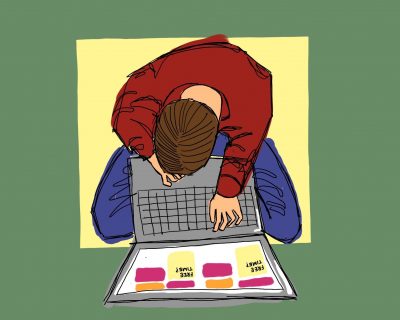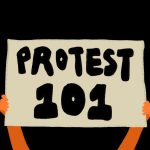Spring semester is starting after an unusually long break, and because I’m a nerd, I’ve looked forward to classes. Being productive is in itself satisfying, but it also offers a much-needed distraction from the pandemic.

Usually, everyone dreads having to work, and I am no exception. However, after a month with nothing to do, I find myself smiling at the prospect of putting pen to paper once again.
Yet this shift in attitude leaves me wondering: if productivity is so welcome now, how come it isn’t when we have time to kill? Should free time be spent being productive, or is it important to build up that desire to work by slouching around and doing nothing?
As enjoyable as it is to go full-on couch potato, productive downtime can improve your well-being, according to author James Wallman in an article with CNBC Make It. Although it may be more instantly gratifying to watch TV than to exercise, the latter will make you happier in the long run — pun intended.
Spending your free time wisely can also improve your professional life. Finding enjoyable hobbies that can foster important career skills — such as reading or volunteering — will help kill two birds with one stone.
Free time doesn’t have to be task-oriented to be productive, either. Simply spending that time with friends and family can be incredibly rewarding.

“Socializing not only staves off feelings of loneliness, but also it helps sharpen memory and cognitive skills, increases your sense of happiness and well-being, and may even help you live longer,” according to a Mayo Clinic article.
Along with the health benefits, using your breaks to socialize can also help you network with others.
However, there is a catch. When play becomes work, it also becomes easier for you to burn out.
Relaxation is key for continued success, and a calm, clear mind allows you to tackle stressful assignments. Constantly working prevents you from getting that chance to relax — after a while, it can be draining and impact your effectiveness.
Being too productive can actually make you less productive.
The ongoing pandemic presents us with even more difficulties. Productive uses of free time have now become dangerous or impossible. For example, socializing is hindered by curfews, social distancing and masks — and if you see too many people, it could literally kill.
Under the constant pressure of a pandemic, mind-numbing activities have also become crucial for our sanity. Staying mentally healthy has become more and more of a challenge, and forcing ourselves to be productive can be a chore.
It seems as if we aren’t any closer to an answer on how we should spend our downtimes. Being productive is great, but so is binging an entire TV series in one day.
Is there really a correct way to spend your off-days — one that maximizes your mental health for the coming work days ahead?
There is a rather simple answer: do the things that make you happy.
Research has shown success leads to happiness. However, it has also shown the opposite can be true — happiness leads to success. When we are happy, we tend to do better and be better.
But if our happiness is dependent on our success, and our success is dependent on our happiness, how can we ever become either?
This is where free time becomes so important. When we spend our spare time wisely — either doing things we love or just unplugging — we can improve our happiness and overall quality of life.
If reading makes you happy, do that. But if you can’t get past two pages without falling asleep, then try another activity, such as listening to podcasts.
We can all tailor our free time to our individual preferences and needs to become happy, fulfilled and successful.




